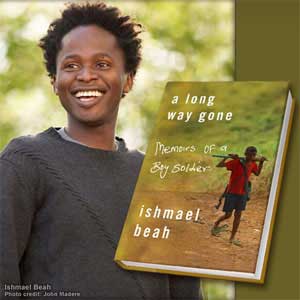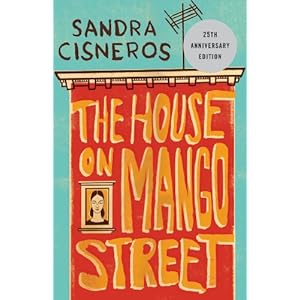
Books. They have always been at the heart of many great conflicts, haven't they? Want to suppress a people? Take their written language, smother their voices. Want to control the way they think and feel about the world? Control the literature they are allowed to read. There is the message and recognition that books are powerful, and shouldn't be hidden away, banned, burned, censored, etc. But, that is not really the message I got from
Voices, it was more just a thought floating around the back of my mind.
Memer's story (which I suppose is more than the story of Memer) speaks more to the idea that there is good and bad in everyone and that, even in times of war, it is better to try and understand them to try and retaliate. I don't really know how I feel about that, though. On some level that's like asking the Jewish people to understand the Nazi's (and vice versa), or like trying to talk a great many Americans into understanding Middle Eastern terrorists. Maybe it would be helpful for healing, but it doesn't ever make things okay: just because you understand someone doesn't necessarily mean you agree with them, or that it leads to the solving of any type of issue.
I feel like this novel can easily be translated into the goings-on of today. Many young people with refugee status may be able to relate to Memer and her people and their situation. Her story is not all that unlike the stories we read in "My Name Is..." or the experiences of Mai in
Tangled Threads. In all three of these pieces of literature, there is a shared anger (and hatred) for their oppressors (generally, the people who brought war to their people). I feel like reading a book like
Voices might be a good way to introduce the topic of war and refugees into the classroom, and then maybe move into a text like
A Long Way Gone or
Tangled Threads as a way of better understanding our own community. This novel easily relates to contemporary issues, and is a good way to bring those issues up in class.
Personally, I struggled with the text. I found it difficult to fully immerse myself in Memer's world. While there were certainly some interesting characters (like Orrec and Gry), I struggled to connect. I could see the relevance, but I kept finding myself confused over what was happening. I felt like I wasn't getting enough background.
What are Alds? Why are they fighting again? Where did the author come up with these funny words? How do you pronounce this name? I found it difficult to stay in the text because I needed so much more background information. I felt like I'd been thrown into a foreign land with no idea of how it operated. Maybe that is also a valuable lesson. I felt displaced, probably like many refugees do when they leave their homeland. I did a little digging around and found out that
Voices is the companion novel to
Gifts, which sounds like it provides to front-loading and background information I was yearning for. While I appreciated the novel, and definitely had moments when I was enjoying it, I would be hesitant to recommend it to others. I think I will read
Gifts, and then see how it affects my understanding of
Voices. If it changes it all for me, I'll be sure to recommend that they be read together.



















